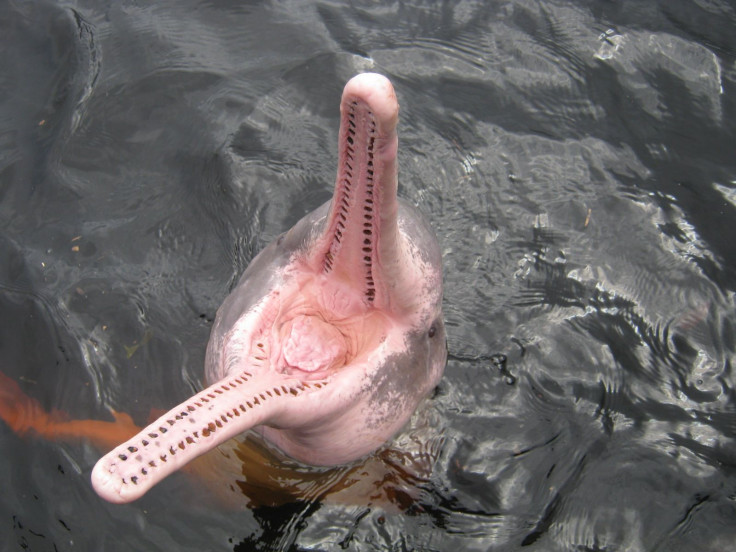Whales, Seals 'Highly Susceptible' To COVID-19 From Human Wastewater: Study
KEY POINTS
- Researchers determined marine mammal species that are susceptible to COVID-19
- Many of the susceptible species already have vulnerable populations
- The researchers are calling for better wastewater management practices
Can marine animals also contract COVID-19? Researchers of a new study found that some marine mammals may be at high risk of being infected with the virus through the wastewater being pumped into their habitats.
Authorities have been studying wastewater in the effort to find how the coronavirus can spread in communities. In a new study, the researchers also looked at untreated wastewater as a possible conduit for COVID-19, except this time, they looked at the marine mammals that may be at risk.
For the study, published in Science of the Total Environment, the team looked at which marine mammals would be susceptible to SARS-CoV-2, the virus that causes COVID-19. Using genomic mapping, the researchers discovered "striking similarities" between the key amino acids that the virus attaches to in humans and several marine mammal species such as dolphins and whales, the news release from Dalhousie University explained.
This suggests that they could also be vulnerable to being infected with SARS-CoV-2, with some of them having either the same or even higher susceptibility to the virus as humans, the researchers found.
"We identified that many species of whale, dolphin and seal, as well as otters, are predicted to be highly susceptible to infection by the SARS-CoV-2 virus," the researchers wrote.
Untreated Wastewater
How would the animals get infected?
There has been evidence of viral shedding through feces as a result of the virus' capability of infecting the gut and other organs. In Spain, France, and Italy, for instance, traces of the virus have been detected in untreated sewage, the news release said. In Ecuador, SARS-CoV-2 was also detected in the river water where untreated sewage is directly delivered.
When the wastewater then reaches its habitats, the vulnerable marine mammals are left exposed to the virus.
Certain species of whales, seals and other endangered marine mammals could fall victim to #COVID19 infection through wastewater and sewage that seeps into their marine habitats. https://t.co/qmT4jyY0CL
— Dalhousie University (@DalhousieU) November 9, 2020
"Our major concern is in developing nations, where there is already a disparity in public health and the wastewater treatment infrastructure required to handle the COVID-19 crisis," study co-author Saby Mathavarajah said in the news release. "Monitoring susceptible species in these high-risk areas around the world will be pertinent for protecting wildlife during and post-pandemic."
Already Threatened
Also concerning is the fact that among the species the researchers identified to be "highly susceptible" to the virus, 15 are already at risk, being categorized as Near Threatened, Vulnerable, Endangered, or Critically Endangered.
These include the vaquita, Amazon river dolphins, North Pacific right whales, sperm whales, Northern sea otters, and Northern fur seals.
"Many of these species are threatened or critically endangered," study lead Dr. Graham Dellaire said in the news release. "In the past, these animals have been infected by related coronaviruses that have caused both mild diseases as well as life-threatening liver and lung damage."
So far, no marine mammals have been documented to be infected with SARS-CoV-2. However, with the vulnerable species being rather social, it's not impossible for an infection to spread in a group.
As such, the researchers are calling for better wastewater management practices and perhaps monitoring of the marine mammals for possible infections.
"Currently there are many unknowns surrounding the biological effects and transmission of this novel virus in humans and other mammals," the researchers wrote. "Thus, our study urges the need to act in a cautionary way during the current COVID-19 pandemic and future pandemics to protect marine wildlife through proper wastewater management."

© Copyright IBTimes 2024. All rights reserved.






















